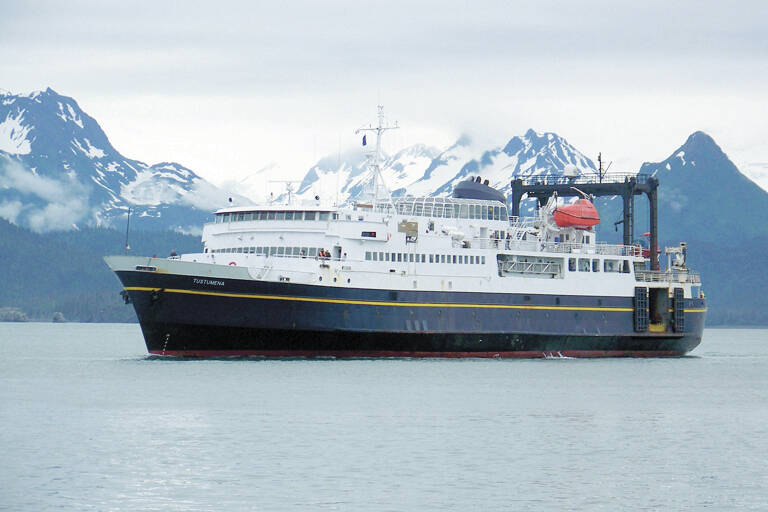By Rich Moniak
This is the third straight winter that Gov. Mike Dunleavy’s fiscal policies have left the Alaska Marine Highway System with gaps in ferry service to rural communities. Now, the uncertainty created by those schedule reductions has left the state with a severe crew shortage and the new MV Tazlina sitting on the sidelines.
The good news is thanks to our congressional delegation the system is about to be bailed out with federal funds.
“I think you’re gonna see a lot more funding here in the next few months designated for the marine highway system,” Dunleavy said in response to a question at the press briefing where he announced plans to replace the 57-year-old MV Tustumena. “We know we’re getting money from the feds,” he explained, “in the neighborhood of … hundreds of millions of dollars.”
Although he neglected to elaborate on why that money is coming, I’m sure all the reporters in the room knew it’s part of the Infrastructure Investment and Jobs Act passed by Congress last month.
Sen. Lisa Murkowski worked with a bipartisan group of senators to craft the bill. She and Sen. Dan Sullivan were among the 19 senate Republicans who voted in favor of it. After a small group of House Democrats refused to support it, Rep. Don Young and 12 other Republicans saved it from defeat.
But because his tongue is tied by a twice-impeached, one-term former president, Dunleavy couldn’t bring himself to publicly thank the delegation or even name the bill.
Months earlier, Donald Trump had declared it a disgrace and warned Republicans not to vote for it. After it passed the House, he called Young and his colleagues “RINOs, sellouts, and known losers!” In the same statement, he referred to Murkowski as the “Disaster from Alaska. … There is ‘almost’ nobody worse!”
Murkowski, of course, isn’t intimated by Trump.
Young isn’t either, according to the Washington Post. After interviewing him last week, the headline of their story read, “Don Young is the rare Republican who’s not afraid of Trump — or of saying he needs to ‘shut up’.”
The delegation had good reasons to back an infrastructure bill aimed at improving the nation’s roads, bridges, airports, water systems and more. For the first time, the state will be able to apply Federal-aid highway funds for AMHS operations and repairs. And it will provide $1 billion for essential ferry service to rural Alaskan communities.
That’s a much bigger neighborhood of federal dollars than Dunleavy cared to mention. He’s not about to turn it down.
But offering any display of gratitude to Murkowski and Young would be a slap in the face to Trump. The legislation is a glaring reminder of his failure to keep a major campaign promise and of his ineffectiveness at governing.
Trump convinced many voters that, as a builder himself, he’d make infrastructure improvements a high priority. “Domestically, we need to undertake a massive rebuilding of our infrastructure,” he wrote in his 2015 book, “Crippled America: How to Make America Great Again.” Three months before the 2016 election, he told the host of a Fox Business Network program he had a $500 billion plan to do just that.
His message didn’t change after being inaugurated. “It is time to recapture our legacy as a nation of builders,” he said in June 2017. “I’m calling on all Democrats and Republicans to join together, if that’s possible, in the great rebuilding of America.”
That was during what the White House called infrastructure week. Between then and July 2020, he made six other attempts to get the ball rolling. By that time though, everyone in Congress understood Trump never had a plan at all.
If he really wanted to get something done, he could have asked for help from a bipartisan group of Senators. It’s easy to imagine Murkowski and Young, in consultation with then-Gov. Bill Walker, making sure there was sufficient money for AMHS to maintain reliable service to its 30 communities.
Had that happened, it would have been easy for Dunleavy to keep the campaign promise he made three years ago to ensure AMHS “remains the backbone of transportation in Southeast.”
Instead, Trump failed. And we’ve got a governor who is afraid to say where Alaska is getting the money to rebuild the system he broke.
Rich Moniak is a Juneau resident and retired civil engineer with more than 25 years of experience working in the public sector.

